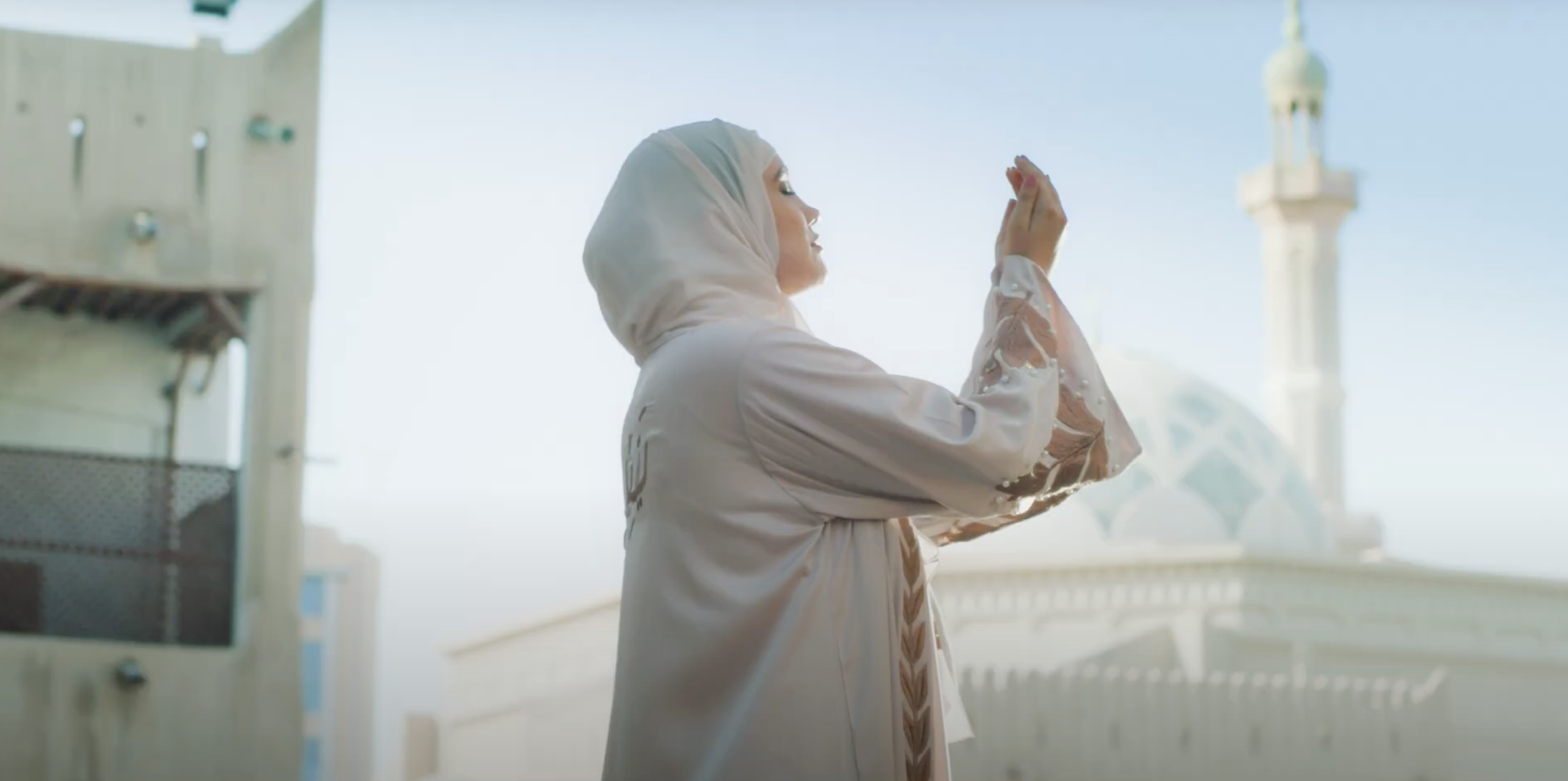As Muslims around the world enter the sacred days of Dhul Hijjah — the month of Hajj, sacrifice, and certainty — it’s a time to reflect not just on rituals but on values. And among many Muslim women today, one of those reflections is identity: how to dress with dignity in a world that rarely designs for us?
That was a question Aisha Hossain asked herself. It prompted her to create Selhaya — a new British luxury fashion house created for women who choose modesty but refuse to compromise on elegance.
A personal journey
The idea came to Aisha not in a design studio but during a quiet Ramadan visit to the Sheikh Zayed Grand Mosque in Abu Dhabi.
Arriving before Fajr prayer, she found herself alone in the courtyard. “A rare stillness surrounded me — spiritual, but also personal,” says Aisha. It was the first time she felt deeply connected to how she was dressed: draped in a flowing abaya.
Aisha didn’t wear abayas every day. Back in London, she worked in Westminster in corporate settings and political circles — often struggling to find modest, refined clothing that truly fit her.
Brands like Max Mara and Dior offered beautiful tailoring, but at times, the necklines were too low. The skirts had slits. “Modesty,” in their world, was still just a suggestion.
“There are so many Muslim women like me,” explains Aisha. “We want to dress elegantly but not always loudly. And we’re tired of having to layer, tailor, or second-guess every purchase.”
That’s when the question came: “Why hasn’t anyone built a Maison for women like us?”
A Maison, not a brand
For Aisha, Selhaya is not just a modestwear brand. It’s a ‘Maison’ — a name given to a fashion house or studio that designs and sells high-end clothing.
Every Selhaya collection begins with hand-drawn sketches. Robes are made using couture fabrics like silk, linen and chiffon — materials rarely used in abayas, and never in fast fashion. Each robe is named, archived, and delivered with a collector card, du’a bookmark, and custom Maison packaging.
“Selhaya is built not for mass production — but for legacy,” says Aisha. “It is made for the woman who dresses in meaning.”
Yaqeen: A Dhul Hijjah collection
The first release from Selhaya is titled Yaqeen (meaning certainty) and honours the Day of Arafah – the ninth day of Dhul Hijjah.
Only nine robes will ever be made, offered by registry — just a private unveiling through the fashion house.
Yaqeen is the first piece in The Maison Collector Series — a luxurious three-piece abaya set crafted in 100% silk. It’s embroidered by hand and every motif is stitched with intention.
“Each leaf, pearl and thread finished with Maison elegance,” says Aisha. “It is meant to be worn in prayer, in celebration, or in stillness. And then to be preserved — not just as clothing, but as memory.”
True modesty and luxury fashion
In a world that often reduces modestwear to mass or mainstream, Selhaya positions itself differently.
Luxury fashion has long served Muslim women — they buy the handbags, the heels, the accessories. But when it comes to clothing, there’s been a gap.
“Why must we always search for a ‘modest option’ in Western labels? Why not build a Maison where the starting point is modesty and rooted in Islam?” says Aisha.
“True luxury isn’t about loudness. It’s about how something makes you feel — the weight of silk on your shoulders, the ritual of how it’s packaged, the intention behind the way it arrives,” she adds.
Fast fashion has made clothing disposable. But Islamic values teach us restraint, quality, and meaning. Aisha says Selhaya invites women to build timeless wardrobes, filled not with trends “but with heirlooms.”
Beauty and barakah
Charity is a key part of Selhaya’s business model. “At Selhaya, it’s embedded into every capsule — we design not only for beauty but for barakah,” says Aisha.
Every robe purchased contributes directly to giving campaigns. It’s a brand pillar Aisha insisted on from day one.
“Muslims are among the most generous communities in the world,” she says. “So when a woman wears Selhaya, she’s not just investing in herself. She’s part of a larger intention. Because giving should not interrupt beauty, it should deepen it.”
For Aisha, this integration of purpose and aesthetics speaks to a deeper ambition for what Selhaya represents.
“Selhaya was never about building a brand. It was about building a space — for women who dress in meaning, who move quietly, and who choose their garments the way they choose their words: with care.”
Selhaya’s collections are available through the company’s website.


















